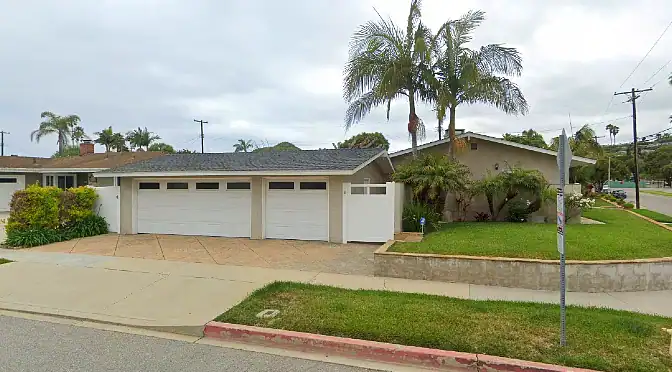
Private Money Lending for Real Estate
Private money lending is a valuable financing tool used by real estate investors and property owners in need of fast and flexible financing. This article aims to address the top frequently asked questions about private money lending, providing comprehensive insights into this specialized type of real estate financing.
1. What is Private Money Lending?
Private money lending for real estate is a form of financing where individuals or private entities provide loans to real estate investors and borrowers with real estate as collateral. This alternative funding source enables investors to secure capital outside traditional banking channels, allowing for faster and more flexible real estate lending solutions.
2. How Does Private Money Lending Work?
Private money lending works through a direct relationship between the borrower and the private money lender. Borrowers submit loan applications and provide information specific to their loan scenario. Upon approval, the private money lender processes and funds the loan with terms and conditions agreed upon by both parties.
3. What Are the Advantages of Private Money Lending Over Traditional Financing?
Private money lending offers several advantages in the realm of real estate:
- Fast Approvals: Private lenders can expedite the approval process, allowing investors to seize time-sensitive opportunities.
- Flexible Terms: Unlike traditional banks, private lenders often provide more flexible loan terms tailored to the specific needs of the real estate project.
- Less Stringent Credit Requirements: Private lenders may prioritize the potential profitability of the investment rather than strict credit scores.
4. Who Are Private Money Lenders?
Private money lenders in the real estate sector can be private companies, individuals or wealthy entrepreneurs. These entities specialize in investing in short-term loans secured by real estate.
5. What Types of Loans Do Private Money Lenders Offer?
Private money lenders specialize in real estate loans, offering various products such as:
- Fix-and-Flip Loans: Short-term financing for purchasing and renovating properties for resale.
- Bridge Loans: Temporary loans facilitating the transition between the purchase of a new property and the sale of an existing one.
- Construction Loans: Funding for the construction or renovation of real estate projects.
6. What is the Difference Between Private Money Lending and Hard Money Lending?
Both private money lending and hard money lending involve non-traditional financing that requires securing a note and deed of trust against real estate. Private money and hard money are considered by many to be essentially the same thing.
7. How Do I Find Reputable Private Money Lenders?
Finding reputable private money lenders involves referrals, research and networking:
- Online Platforms: Explore dedicated real estate investment platforms and forums.
- Networking Events: Attend industry-specific events, conferences, and real estate meetups.
- Professional Recommendations: Seek recommendations from real estate agents, attorneys, or other industry professionals.
8. What Are the Typical Interest Rates for Private Money Loans?
Interest rates for private money loans in real estate typically range from 10% to 14%. The exact rate depends on factors such as current market private lending interest rates, the desirability of the real estate, loan to value ratio needed, borrower’s creditworthiness, loan amount, and the perceived risk of the loan scenario and real estate project.
9. What is the Loan-to-Value (LTV) Ratio in Private Money Lending?
The Loan-to-Value (LTV) ratio is a significant factor in private money lending for real estate. LTV represents the percentage of the property’s value that the lender is willing to finance. Private lenders may offer LTV ratios ranging up to 60% to 80%, depending on the perceived risk and potential return on investment.
10. What Are the Repayment Terms for Private Money Loans?
Repayment terms for private money loans are negotiable between the borrower and the lender. Common structures include interest-only payments, balloon payments, or traditional amortization schedules. The flexibility of these terms allows borrowers to align the repayment plan with the cash flow of their real estate project.
11. Can I Use Private Money Lending for Real Estate Investments?
Yes, private money lending is a popular choice for real estate investments. Investors can leverage private funds to finance property acquisitions, renovations, or other real estate projects, unlocking opportunities that require fast and flexible funding traditional lending is not able to provide.
12. Do Private Money Lenders Consider Credit Scores?
Unlike traditional lenders, private money lenders in real estate prioritize the value of the property and borrower’s equity in the property over credit scores. While creditworthiness may still play a role, private lenders often focus on the value and viability of the real estate project. If borrower’s exit strategy requires refinancing with a traditional lender, the private lender will need to be comfortable that the borrower’s credit scores will be high enough to qualify for the traditional loan.
13. How Quickly Can I Get Approved for a Private Money Loan?
Private money lenders are known for their expedited approval processes. Real estate loan approvals can happen within 1 day in some situations, enabling borrowers to move swiftly and capitalize on time-sensitive opportunities.
14. What Are the Risks Associated with Private Money Lending?
Investors engaging in private money lending for real estate should be aware of potential risks:
- Higher Interest Rates: Private money loans typically have higher interest rates compared to traditional financing.
- Market Fluctuations: Real estate markets can be volatile, impacting the potential returns on investment.
- Default Risks: If the real estate project faces challenges and loan payment are not made, there is a risk of default and potential loss of collateral through the foreclosure process.
15. Are There Any Upfront Fees or Costs Involved in Private Money Lending?
Private money lending may involve fees such as origination fees, processing fees, or appraisals. Borrowers must carefully review the terms and associated costs to ensure a transparent understanding of the financial commitment. Borrowers should ask about all costs and fees associated with the private money loan at the beginning of the process to avoid any later surprises.
16. Can I Use Private Money Loans for Refinancing?
Private money loans can be a viable option for refinancing existing real estate debt. Investors can use private funds to restructure their financing, especially if they face challenges with traditional refinancing options or don’t have time to wait for the traditional loan process to be completed.
17. What Criteria Do Private Money Lenders Use to Evaluate Loan Applications?
Private money lenders assess loan applications based on various criteria specific to the real estate project including:
- Property Value: The appraised value of the real estate collateral.
- Loan to value: The loan amount compared to the current value of the real estate.
- Investor Experience: The borrower’s track record and experience in real estate investing.
- Exit Strategy: A clear plan outlining how the investor intends to repay the loan.
- Strength of the Borrower: The borrower’s income, credit, assets, etc.
18. Are There Restrictions on How I Can Use the Funds from a Private Money Loan?
While private money lenders offer flexibility, there might be restrictions on how funds are used. It’s crucial for borrowers to communicate their intentions clearly and ensure alignment with the lender’s expectations. The use of the borrowed funds (consumer purpose use vs. non-consumer purpose use) can change the type of loan provided by the private money lender.
19. What Happens If I Default on a Private Money Loan?
Defaulting on a private money loan for real estate can have serious consequences, potentially leading to the loss of the collateral property. Investors facing challenges should communicate openly with lenders and explore potential solutions to avoid default. Once the property goes into default the lender may initiate the process to have the property sold at foreclosure auction.
20. Can I Negotiate the Terms of a Private Money Loan?
Negotiating terms is possible for private money lending for real estate. Investors and lenders can discuss interest rates, repayment schedules, and other terms to create a mutually beneficial agreement that aligns with the unique aspects of the real estate project.
21. Is Private Money Lending Regulated, and What Legal Considerations Should I Be Aware Of?
Private money lending for real estate is subject to regulations that vary by jurisdiction. Understanding the legal landscape is crucial for both lenders and borrowers. Compliance with local laws, licensing requirements, and disclosure obligations ensures a smooth and lawful lending process.
22. Are There Tax Implications Associated with Private Money Lending Transactions?
Tax implications can vary based on the nature of the real estate investment. Borrowers should consult with tax professionals to gain insights into potential deductions, capital gains, and other tax-related considerations associated with private money lending transactions.
23. Can I Use Private Money Lending for Business Purposes Other Than Real Estate?
While private money lending is commonly associated with real estate, investors can explore using private funds for various business purposes. Business owners can borrow against real estate and raise funds to fund startups, expansions, or working capital needs outside the realm of real estate.
24. How Does the Loan Approval Process Differ from Traditional Banks in Private Money Lending?
The loan approval process in private money lending is often more streamlined than traditional banks. Private lenders prioritize the value of the real estate and the borrower’s equity in the property and may require less documentation, resulting in quicker approvals compared to the bureaucratic processes of traditional financial institutions.
25. What Documentation Is Typically Required for a Private Money Loan Application?
While private money lending involve less paperwork than traditional loans, certain documentation is still necessary. Borrowers should be prepared to provide details about the real estate, financial statements, and any other information that demonstrates the viability of the project. For consumer purpose loans, the borrower will need to provide income verification and meet a debt to income requirement due to the current federal regulations forced upon all lenders providing a consumer purpose loan.
26. Do Private Money Lenders Require Appraisals for Collateral?
Private money lenders may require property appraisals to assess the collateral’s value accurately. An appraisal helps determine the Loan-to-Value (LTV) ratio, influencing the loan amount and mitigating risks for both the lender and the borrower. Some private lenders will value the property themselves by conducting a Broker Price Opinion (BPO) instead of obtaining a formal appraisal.
27. Can I Use Private Money Lending for Purchasing Raw Land or Undeveloped Properties?
Private money lending can be a viable option for financing the purchase of raw land or undeveloped properties. Lenders may assess the potential value of the land and the investor’s plans for development when considering such loan applications. Private money lenders will have a much lower LTV for these types of properties.
28. What Is the Usual Duration of a Private Money Loan?
The duration of a private money loan for real estate varies based on the agreement between the borrower and the lender. The majority of private money loans have short terms of 1-3 years. Shorter terms are preferred by private lenders as this reduces the risk for the lender.
29. Are There Prepayment Penalties with Private Money Loans?
Investors should be aware that some private money loans may include prepayment penalties. These penalties could impact the overall cost of financing if the borrower opts to repay the loan before the agreed-upon term.
30. What Steps Should I Take to Improve My Chances of Getting Approved for a Private Money Loan?
To enhance approval chances, borrowers should present a comprehensive application that includes:
- Sufficient Cash/Equity Available: Funds for a down payment or equity is required
- A Solid Business Plan: Clearly outline the real estate project, including market analysis and potential profitability.
- Proven Track Record: Highlight any successful past real estate investments.
- Clear Exit Strategy: Demonstrate a well-thought-out plan for repaying the loan.
31. How Does the Due Diligence Process Work for Private Money Lenders?
Private money lenders conduct due diligence to assess the risk and viability of a real estate investment. Investors should be prepared to provide detailed information about the project, their financial position, and their experience to instill confidence in the lender’s decision-making process.
32. Can I Obtain Multiple Private Money Loans Simultaneously?
Yes, investors may secure multiple private money loans simultaneously as long as the investor has the ability to service all of the loans. Lenders will carefully evaluate the investor’s ability to manage multiple loans before approving additional private loans.
33. Do Private Money Lenders Fund Construction Projects?
Yes, private money lenders often fund construction projects for real estate development. This flexibility allows developers to initiate and complete projects more quickly compared to traditional construction financing options.
34. What Are the Common Reasons for Private Money Loan Denial?
Understanding common reasons for loan denial is crucial for investors:
- Inadequate Collateral: The value of the collateral may not meet the lender’s requirements.
- Unclear Exit Strategy: Lenders may be hesitant if the investor lacks a clear plan for repaying the loan.
- Unfavorable Market Conditions: Economic uncertainties or unfavorable market trends can impact lending decisions.
35. Are There Geographic Limitations on Private Money Lending?
Private money lending for real estate may have geographic limitations based on the lender’s preferences or regulatory requirements. Investors should be aware of any such restrictions when seeking private funding for projects in specific locations. Private lenders are typically licensed for specific states.
36. Can I Refinance a Traditional Loan with a Private Money Loan?
Private money loans can serve as an alternative solution for refinancing existing traditional loans. Investors facing challenges with conventional financing options may explore private money lending to restructure their debt, obtain funds quickly and optimize their financial position. Private money loans are commonly refinanced by traditional loans.
37. What Are the Qualifications for Becoming a Private Money Lender or Investor?
Individuals interested in becoming private money lenders or investors should possess:
- Financial Acumen: Understanding real estate markets and investment strategies.
- Risk-Tolerant Mindset: A willingness to embrace the inherent risks associated with private money lending.
- Strategic Assessment Skills: The ability to evaluate investment opportunities strategically.
38. Are There Specific Industries or Property Types That Private Money Lenders Specialize In?
Private money lenders may specialize in various industries or property types within the real estate sector. Some may focus on residential properties, while others may prefer commercial real estate or specific niche markets. Investors should seek lenders whose specialization aligns with their project goals.
39. How Do Interest-Only Payments Work in Private Money Lending?
Interest-only payments in private money lending allow investors to make smaller payments during the initial stages of the loan. This arrangement provides flexibility in managing cash flow, especially during the early phases of a real estate project.
40. Can I Use a Private Money Loan to Buy Distressed Properties for Renovation?
Yes, private money loans are commonly used to finance the purchase and renovation of distressed properties. This strategy allows investors to capitalize on undervalued assets, enhance their market value through renovations, and potentially achieve substantial returns upon resale. Distressed property typically will not qualify for traditional financing, leaving only cash and private money lending as options to purchase the property.
In conclusion, private money lending for real estate is a dynamic and flexible financing option that empowers investors to pursue diverse projects. By navigating the regulatory landscape, understanding the due diligence process, and strategically leveraging private funds, investors can unlock a world of possibilities in the ever-evolving realm of real estate investment.
The information provided herein is for educational purposes only. North Coast Financial is not providing any legal, tax or financial advice.
Recent Private Money Loans Funded by North Coast Financial
California Private Money Loan Request
We will contact you to review the loan scenario and provide a quote.




